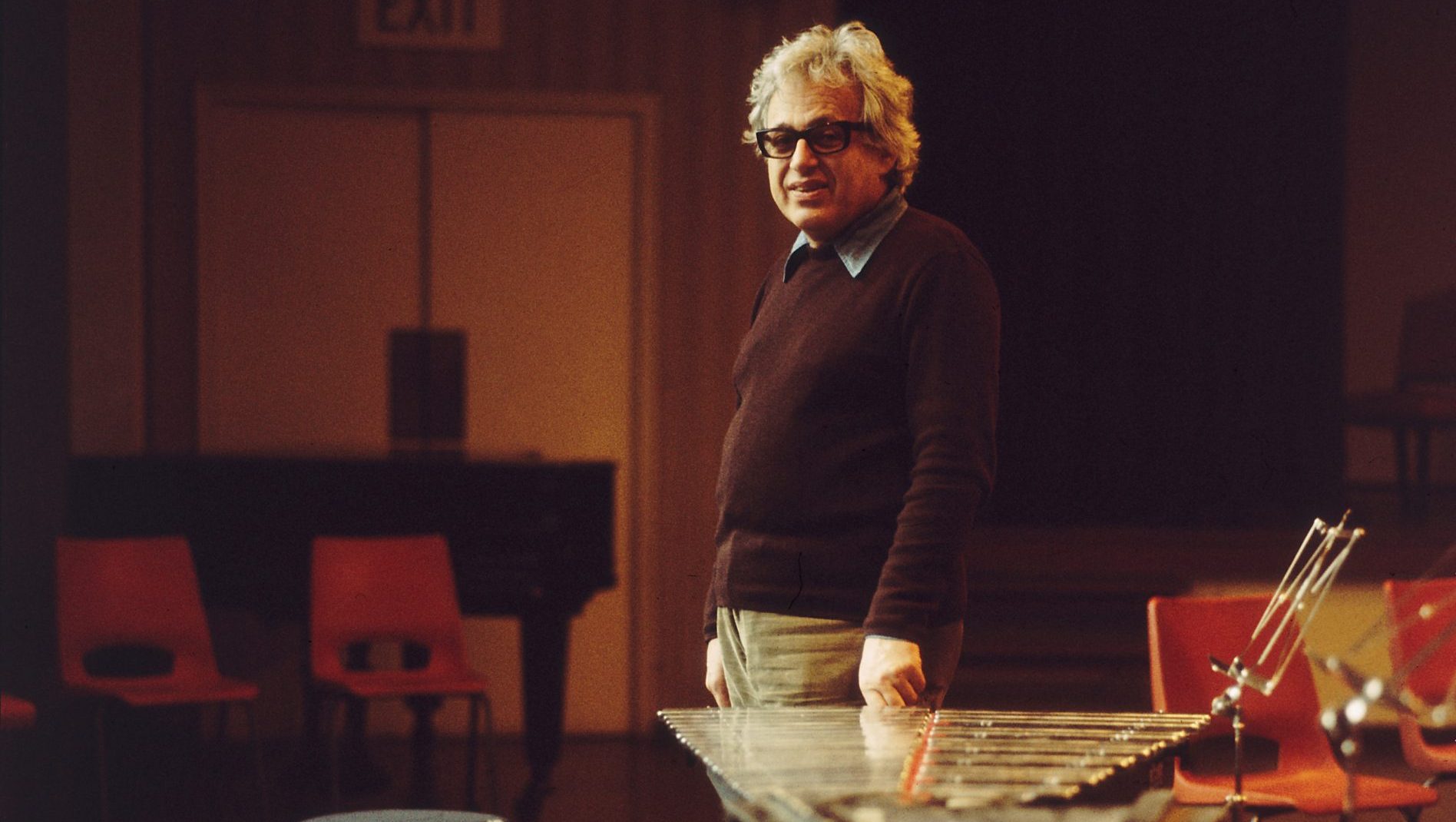There was a tangible uncertainty to the applause. The composer was delighted.
When the audience took their seats at the Hilversum city hall that evening in September 1963 they found an unfamiliar tableau before them. Instead of the customary semicircular stage arrangement of empty chairs and music stands facing a conductor’s rostrum, there were two lines of tables on which were placed rows of clockwork metronomes. Precisely 100 of them if anyone had counted.
Standing in the wings, the composer noted a slightly nervous tone to the hubbub of conversation. Excellent, he thought, and signalled for his ensemble, 10 people in evening dress, to file solemnly on to the stage and take their places at the tables. This being a familiar sight for concert-goers, part of the expected routine, the applause that greeted them combined the relief of familiarity with a tinge of hesitancy. The performers had the appearance of musicians but where were their instruments? And what were all these metronomes for?
Finally György Ligeti walked confidently to the centre of the stage in conductor’s tails and bowed deeply to acknowledge another round of applause, this one louder, more assured, as if to say, at last, someone in charge.
Ligeti turned to the stage and waved one white-gloved hand with a flourish, at which each performer solemnly wound the keys of the metronomes. Then a pause, long enough for the audience to start shifting uneasily, rustling programmes, creaking chairs, scraping shoes, before Ligeti raised both hands and flicked them forwards.
The ensemble set every metronome in motion and strode from the stage. The conductor followed, leaving the audience with 100 pendulums clicking back and forth in a bizarre wash of sound that was part rainstorm, part manic clock factory.
For a quarter of an hour they sat as the metronomes slowly wound down, white noise giving way to a series of intricate clattering rhythms until finally only one metronome remained in motion, a slow, lazy click that eventually stilled to silence.
Unsure whether they had witnessed a genuine performance of what was billed as Ligeti’s Poème Symphonique or were the victims of a practical joke, the audience applauded, awkwardly at first, then with genuine conviction. Most were smiling.
For Ligeti, it felt like a triumph.
“What bothers me above all nowadays are ideologies, all ideologies, in that they are stubborn and intolerant towards others,” he said. “Poème Symphonique is directed above all against them.”
For Dutch television, who filmed the recital for broadcast, the piece was a little too out there for peak-time viewing. They showed highlights of a football match instead, a detail the composer loved.
Ligeti’s rigorous antipathy to ideology was maintained throughout his life and extended way beyond his music. Hardly a surprise given his personal experience of the 20th century’s worst authoritarian doctrines.
Having grown up a Hungarian Jew in Romanian Transylvania, in 1943 the 19-year-old Ligeti was forced into a Jewish labour battalion in southern Hungary. His parents and younger brother, deemed physically unsuitable for hard work, were sent to concentration camps from which only his mother would return.
Most of Ligeti’s work party companions ended up in Serbian copper mines and were either worked to death or murdered, but when the Russians began pushing the Germans back towards Berlin in 1944, Ligeti was still in Hungary. Before long the Soviets had him marching east destined for a Siberian work camp until the doomed procession was halted by a line of Soviet tanks crossing its path. Ligeti was among the brave few who exploited the noisy disruption to escape.
The end of the war found him in Budapest where he enrolled at the Franz Liszt Academy to resume musical studies interrupted by the conflict, but when the Stalinists came to power he was, like all composers, obliged to produce only uplifting, unchallenging music as a bland soundtrack to the march of international socialism.
When in 1956 the Russians arrived in Budapest to crush the Hungarian uprising, Ligeti found himself escaping them again, this time hidden with his wife beneath mailbags on a train to a rural stretch of the Austrian border. They arrived in the west on all fours, crawling through a muddy forest towards an uncertain future.
“I was born in Transylvania as a Romanian citizen but I didn’t speak Romanian, nor were my parents Transylvanians,” Ligeti recalled in 1974. “My mother tongue is Hungarian but I am not really a true Hungarian as I am a Jew, yet I am not a member of a Jewish congregation therefore I am an assimilated Jew. I am not a real Austrian either, only an immigrant, and my German will always have a Hungarian accent.”
Once settled in Vienna, Ligeti was immediately energised by the avant-garde music being made by the likes of Karlheinz Stockhausen and Pierre Boulez, yet even among this genre-defying explosion of creativity he was alarmed to find a restrictive ideology of musical form and performance.
“I spent half my life under two dictatorships, first the Hitler one, then the Russian one,” he said. “It is enough.”
Instead he forged his own path, eschewing the avant-garde to create some of the most daring and original music of an already wildly experimental century. Poème Symphonique was typical Ligeti, upending expectations and challenging audiences while adhering purely to his own musical instincts. Only Ligeti could write an opera featuring a prelude performed on car horns, while his work for conventional instruments broke new ground.
“You still move your fingers over the keyboard,” said French pianist Pierre-Laurent Aimard of Ligeti’s works for the instrument, “beyond that, everything is different.”
Ligeti was creating a new form of music unlike anything else, music without melody or rhythm, “a thick polyphonic web that I call micropolyphony because you cannot hear individual voices” as he described it.
Its most effective expression is found in Ligeti’s writing for strings, in which he created a haunting, disturbing sound the composer Thomas Adès compared to “the heat-death of the universe” and Stanley Kubrick loved enough to include Ligeti’s Requiem, Lux Aeterna and Atmosphères in his 1968 film 2001: A Space Odyssey.
Yet for all the darkness and horror he had witnessed and experienced, Ligeti never lost the sense of playfulness he demonstrated that night in Hilversum in 1963, striving to preserve a streak of levity in his life and work, maintaining a permanent distance from the trauma of his early life.
“I am in a prison,” he said in 1974. “One wall is the avant-garde, the other is the past. I want to escape.”




